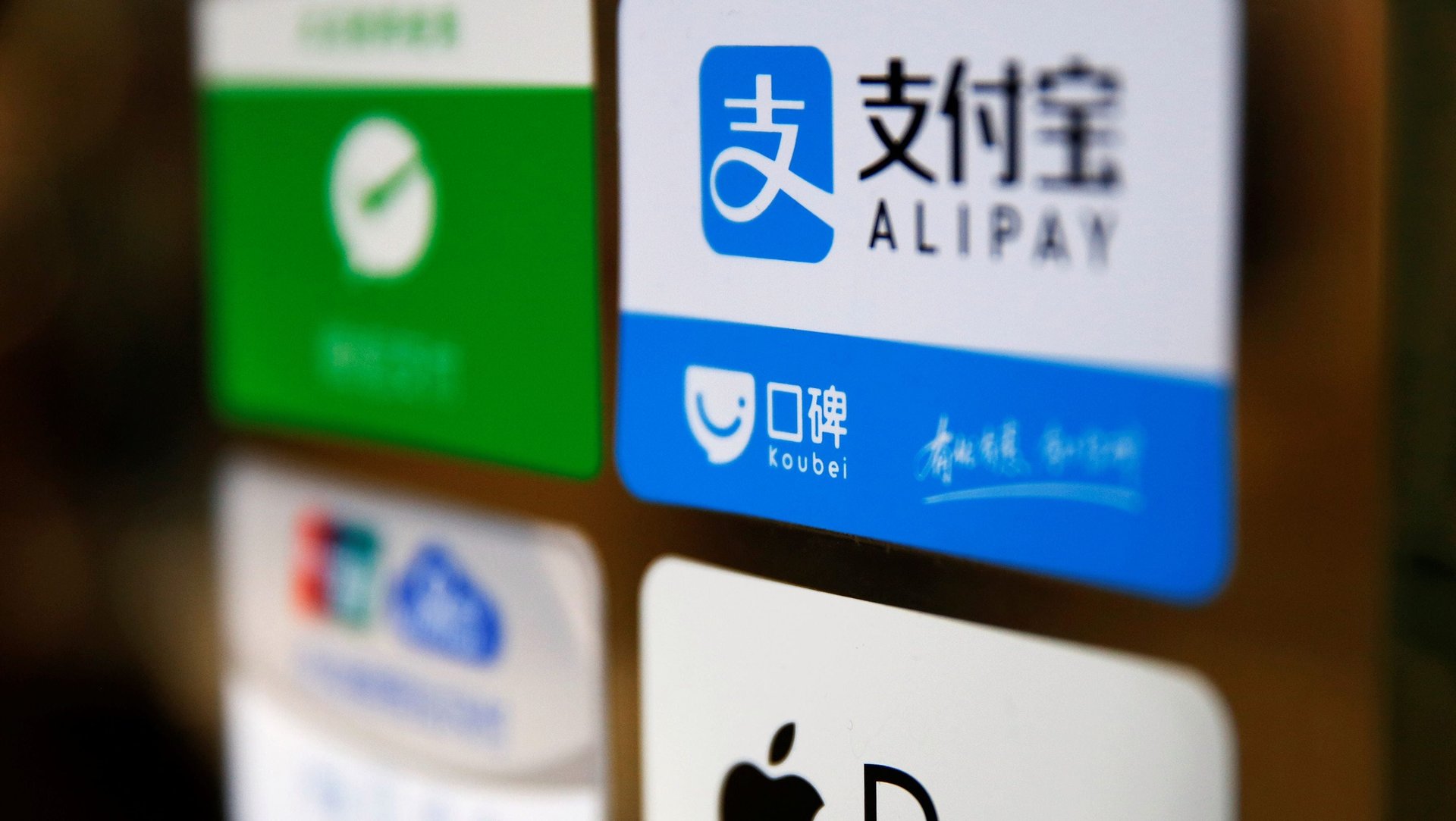The latest frontier of China’s mobile payments boom is prisons
Across China, cash is no longer king. Neither is plastic, which never found mass traction with the Chinese population anyway. What reigns supreme now is mobile payments. Every day, millions of consumers wave their smartphones to pay for just about anything: noodles at street-side food stalls, vegetables at produce markets, highway tolls, bus fares, taxi rides, and traffic fines. One beggar in Beijing was even spotted with a placard that read, “Recommend using WeChat Pay.”


Across China, cash is no longer king. Neither is plastic, which never found mass traction with the Chinese population anyway. What reigns supreme now is mobile payments. Every day, millions of consumers wave their smartphones to pay for just about anything: noodles at street-side food stalls, vegetables at produce markets, highway tolls, bus fares, taxi rides, and traffic fines. One beggar in Beijing was even spotted with a placard that read, “Recommend using WeChat Pay.”
As a sign of just how fierce and wide-ranging the battle for mobile payments is, the fight is now coming to an unlikely arena: Prison.
Alipay, digital payment giant Ant Financial’s mobile platform, confirmed on Monday (Jan. 14) that it has rolled out a new feature allowing prisoners to receive and spend money. The service, dubbed “prison pay” (in Chinese) by Beijing’s Prison Administration Bureau, which implemented the feature late last year, allows family members to send money to inmates for purchasing daily items.
According to Beijing News (in Chinese), family members, after having their identity verified to prove their relation to the prisoner, are allowed to make one transfer of up to 1,000 yuan (roughly $148) each month per inmate. The inmate’s account total cannot exceed 5,000 yuan.
Beijing is currently the only city in China that provides its inmates with the prison pay service, according to Sixth Tone. But given how competitive the mobile payments market is, other cities might well follow suit in due course.
At the forefront of China’s high-stakes mobile payments revolution are two of the world’s most valuable companies, Alibaba and Tencent. Alipay grew out of Alibaba—Ant is an affiliate—and WeChat Pay is owned by the latter. Together they handle about 93 percent of all cashless mobile transactions in China. In 2017, these totaled $15.4 trillion (paywall)–more than 40 times the amount processed in the United States in such transactions. By building all-in-one platforms that blend social media, commerce, and banking, the two technology titans are pushing traditional banks aside and taking on ever-growing roles in the daily transactions of hundreds of millions of citizens.
In the United States, inmates held at federal correctional facilities have accounts that they can use to purchase items. Money can be deposited into an inmate’s account electronically via money transfer services like MoneyGram—which Ant Financial tried and failed to acquire as part of a bid to expand globally—or Western Union, or by money order through the mail.
There are also alternative electronic services like JPay, one of the largest prison financial service providers in the U.S. that handles money transactions for 70 percent of the country’s inmates. Depending on the amount sent and in which state they are sending the funds, transaction fees can be as high as 35 to 45 percent, according to the Center for Public Integrity. Alipay, meanwhile, isn’t charging a handling fee for the service.
(The JPay service is also not foolproof. Last year, hundreds of inmates in Idaho hacked the system and inflated their personal JPay accounts with hundreds of thousands of dollars of credit.)
While Alipay continues to roll out innovative features like the prison pay service to stake its claim on China’s lucrative mobile payments market, it also added a cheeky comment to its statement this week: “We hope you won’t get to use these services.”